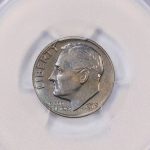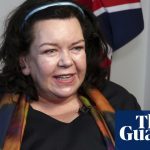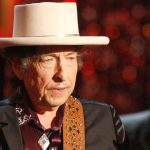As It Happens7:14Wall Street Journal reporter says she was fired over press freedom advocacy in Hong Kong
When Selina Cheng was elected as the head of a Hong Kong press freedom association, she didn’t expect her very first press conference would be about getting fired from her own job.
Cheng says she was let go from her role as a reporter for the Wall Street Journal after she refused to sever ties with the Hong Kong Journalists Association (HKJA).
“It really came as a big shock to me,” Cheng told As It Happens host Nil Köksal. “I never imagined that my own employment would be put in question.”
The Wall Street Journal declined to comment on Cheng’s case, citing privacy, but confirmed the newspaper recently “made some personnel changes.”
“The Wall Street Journal has been and continues to be a fierce and vocal advocate for press freedom in Hong Kong and around the world,” a Journal spokesperson told CBC in an emailed statement issued via its parent company, Dow Jones.
Cheng’s departure comes during a crackdown on press freedom in Hong Kong that’s seen journalists arrested and media outlets closed under a contentious natural security law that came into effect in March.
Journal blames restructuring, says Cheng
Cheng, who worked in the Journal’s Hong Kong bureau, was elected chair of the HKJA on June 22. The organization describes itself as a trade union for journalists that tracks and advocates for press freedom in Hong Kong, a semi-autonomous region of China.
When she informed her bosses at the Journal that she was running for the job, she says “the immediate response was that it was problematic.”
Cheng says her supervisor told her working with HKJA put her in a conflict of interest, and “made a very direct demand for me to withdraw from the election.”
“Ultimately, I decided to refuse that demand. And they told me immediately afterwards that this would be incompatible with my job,” she said. “That’s when I knew that termination would come very soon.”
The termination, she says, came on Wednesday, when the paper’s world coverage chief fired her in person, and told her it was part of restructuring at the company.
Cheng says she doesn’t buy the line that she was let go due to restructuring. She says the company already restructured its Hong Kong bureau twice, once last year and again in May, but that her position was not cut.
“My beat was highlighted as something to focus on. And at that time, there was no talk about moving me to other bureaus or cutting my role … so I don’t believe that my role was part of an actual restructuring,” she said.
“I was very disappointed that this came from the mouth of an editor who was supposed to safeguard the integrity of the journalists reporting.”
Wall Street Journal union stands by Cheng
Cheng says she believes the company framed her firing that way because her right to engage in union activity is enshrined in Hong Kong’s constitution.
The Independent Association of Publishers’ Employees (IAPE), which represents Wall Street Journal reporters in the U.S. and Canada, called on the newspaper to restore Cheng’s job and “provide a full explanation” for her dismissal.
“The Union is always concerned when Dow Jones chooses to terminate the employment of colleagues, no matter where they are based. We were very sorry to hear this news from Selina,” the IAPE said in a press release.
The HKJA said in a statement it was “disappointed and outraged” by the Journal’s decision, saying that by pressuring employees not to take part in the HKJA, the newspaper “risks hastening the decline of what space for independent journalism remains.”
State-run newspaper criticizes Cheng, HKJA
Cheng says her supervisor told her that employees of the Journal should not be seen as advocating for press freedom in Hong Kong, an issue that has been a hot-button topic in the region, and which Cheng has personally covered.
It’s common for newsrooms to have policies prohibiting reporters from engaging in activities that could lead them to being perceived as biased or in a conflict of interest. Editorial staff at CBC, for example, are expected to follow the company’s Journalistic Standards and Practices.
Shortly after Cheng was elected chair of the HKJA in June, the Global Times, a state-run Chinese newspaper, published an article dubbing the organization “a base for anti-China separatist forces to disrupt Hong Kong.”
The newspaper accused Cheng of writing articles “attacking” Hong Kong’s national security law, which prohibits, among other things, subversion against the government, promoting succession from China, and colluding with foreign entities.
Several journalists and prominent activists have been arrested under the law, which follows and expands on controversial security legislation imposed on Hong Kong by Beijing in 2020.
Cheng says she stands by her coverage, and doesn’t believe her role at HKJA impedes her impartiality as a journalist.
“Everything I’ve written [is] justified by fact,” she said.

She noted that Wall Street Journal reporter Evan Gershkovich was just sentenced to 16 years behind bars in Russia for espionage. Russia, like Hong Kong, has cracked down on journalists critical of the government, especially those with ties to international media outlets.
Cases like Gershkovich’s, she says, come at a financial cost for the newspaper.
“I think as a corporation, a profit-making corporation, the Journal would like to reduce any possible risk,” she said.
She says she has no intention of stepping down as HKJA’s chairperson, and she’s looking for a new job in journalism.
“I’m open to any opportunity. I believe that I’m a versatile reporter. I’m confident about my ability in this profession,” she said. “I feel optimistic about being able to land on my feet.”








